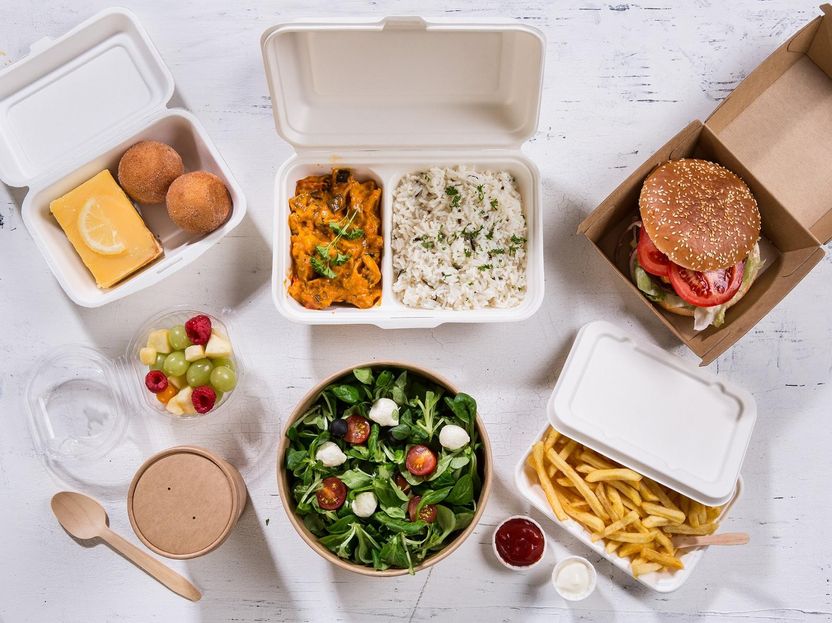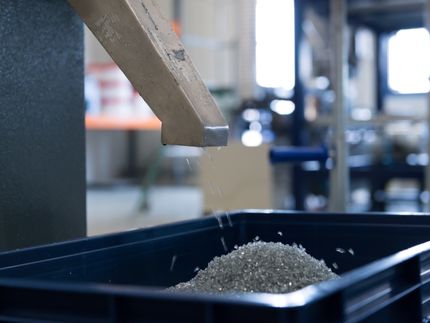Greenbox focuses 100 percent on sustainable products for the foodservice industry
Focus on climate neutrality
Orderingfood without plastic - this is what 78.5 percent of respondents to a representative survey conducted by the WWF and the German Packaging Institute e.V. (dvi) would like to see. (dvi) from 2021. greenbox GmbH & Co. KG set itself the goal back in 2009 of making the food service industry more sustainable by using recycled and renewable raw materials. Since 2017, it has been structuring - as the first provider in the foodservice packaging sector - not only its operations but also its products to be 100 percent climate-neutral. With over 1,000 items available for purchase through its online store, greenbox is the market leader for foodservice solutions in Germany. The range includes cups, bottles, tableware, napkins, disposable and reusable solutions. More information at www.biologischverpacken.de.

Greenbox focuses 100 percent on sustainable products for the foodservice industry
Greenbox GmbH & Co. KG
More than ten years ago, greenbox began developing its products with the purchase of a container of palm leaf. Since then, the Bremen-based company has become one of the leading full-range suppliers in the field of foodservice packaging. "At greenbox, restaurateurs can find suitable sustainable packaging for their own out-of-home meals," says Michael Brink, managing director of greenbox. "Only climate-neutral foodservice solutions for the catering industry are offered. We fully offset the emissions released during the production and transport of packaging to the customer by supporting environmental protection projects. In the past, this included our project in the Kasigau Wildlife Corridor in Kenya, for example. Here we have already been able to save over 11,000 metric tons of CO2. Currently, we are supporting projects in Guatemala and Nigeria, where we have been able to offset over 14,000 tons of CO2."
Replacing plastic packaging with environmentally friendly solution
The European Union's single-use plastic (SUPD) ban has been in force since summer 2021. This bans certain single-use plastic products, such as cotton swabs, drinking straws, plastic cutlery and plates, which have since had to be replaced with sustainable alternatives. greenbox offers the solution here: catering businesses can replace their soup cups, burger boxes, carrier bags, cutlery and napkins with sustainable alternatives. For the products, greenbox uses sugar cane, bamboo or palm leaf, among others, as natural raw materials. Thus, there is an environmentally friendly solution for almost every conventional plastic packaging.
"What stands out is our palm leaf disposable tableware, which is a natural waste product," says Michael Brink. "We use the fallen palm leaves to produce bowls and plates, for example, with low energy input and no additional coatings, which can be disposed of in the compost after use. We completely offset transport-related CO2 emissions." In the interests of transparency and open communication with customers and service providers, greenbox is a member of the "Bundesverband Nachhaltige Wirtschaft" (Federal Association for Sustainable Business) and the "Partnerschaft Umwelt Unternehmen" (Partnership for Environmental Business). The company is also certified with the EcoStep seal, which audits the organizational structure and internal processes every two years for criteria such as quality management, environmental management and occupational health and safety. "At greenbox, we think of sustainability for the foodservice sector holistically. Food service operations can easily order the right solution for them - in smaller and larger quantities - through our online store. In addition, our European production sites enable us to guarantee constant product availability and short delivery times," says Michael Brink.
Note: This article has been translated using a computer system without human intervention. LUMITOS offers these automatic translations to present a wider range of current news. Since this article has been translated with automatic translation, it is possible that it contains errors in vocabulary, syntax or grammar. The original article in German can be found here.
Most read news
Other news from the department business & finance

Get the food & beverage industry in your inbox
By submitting this form you agree that LUMITOS AG will send you the newsletter(s) selected above by email. Your data will not be passed on to third parties. Your data will be stored and processed in accordance with our data protection regulations. LUMITOS may contact you by email for the purpose of advertising or market and opinion surveys. You can revoke your consent at any time without giving reasons to LUMITOS AG, Ernst-Augustin-Str. 2, 12489 Berlin, Germany or by e-mail at revoke@lumitos.com with effect for the future. In addition, each email contains a link to unsubscribe from the corresponding newsletter.



























































